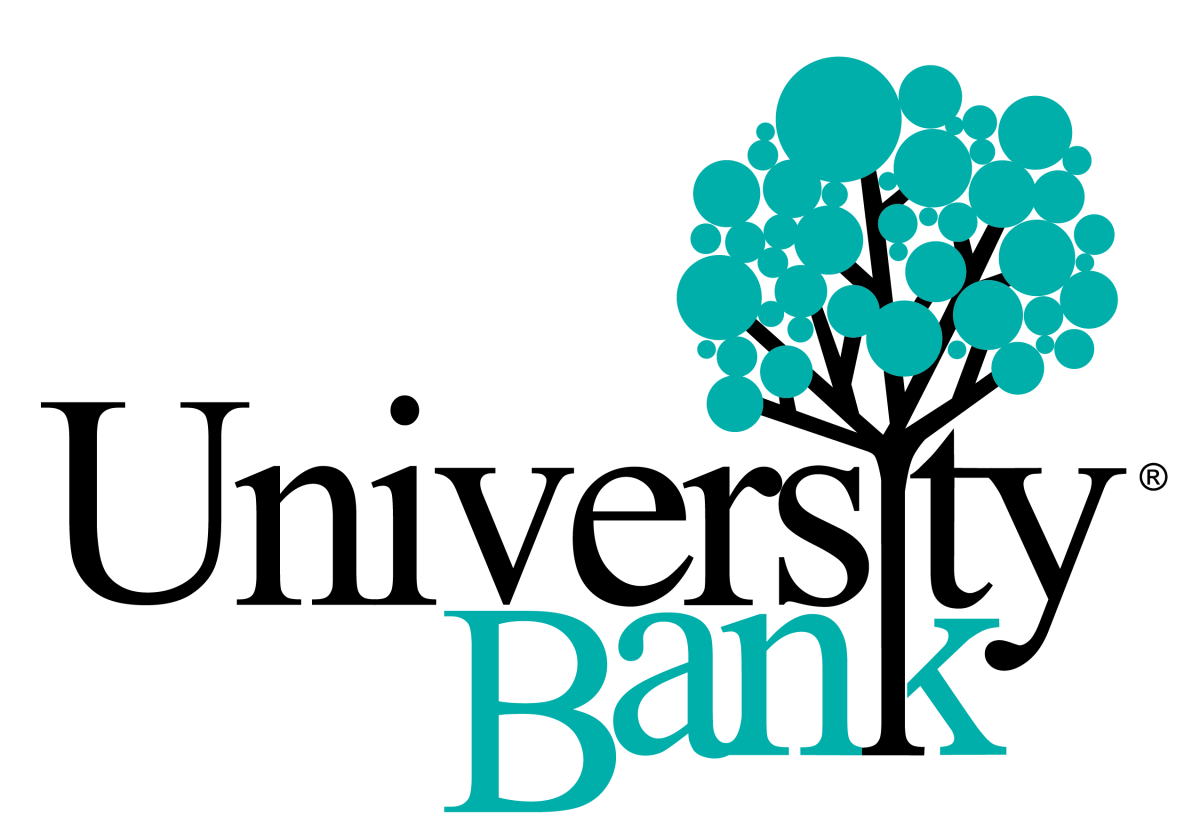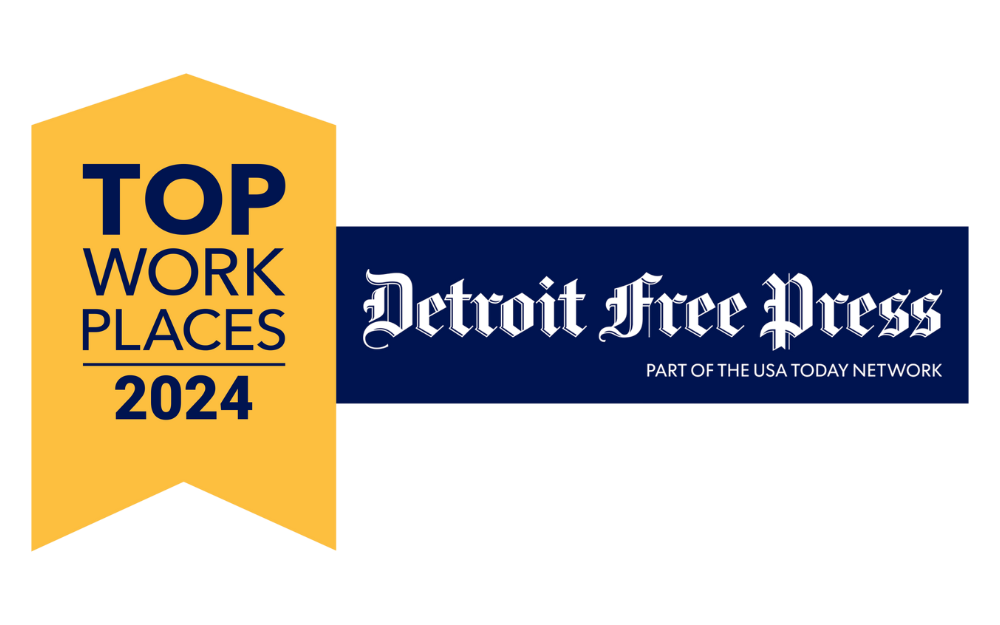Ann Arbor, Michigan, August 10, 2020, — University Bancorp, Inc. (OTCQB: UNIB) announced that it had an unaudited net income attributable to University Bancorp, Inc. common stock shareholders in 2Q2020 of $9,009,106, $1.73 per share on average shares outstanding of 5,204,899 for the second quarter, versus an unaudited net income of $622,269, $0.12 per share on average shares outstanding of 5,202,899 for 2Q2019. For the 12 months ended June 30, 2020, net income was $11,985,822, $2.30 per share on average shares outstanding of 5,204,899 for the period. For 2Q2020 minority expense of $903,126 was incurred.
University Bank had a record $16.2 million of pre-tax income in 2Q2020, before provision for allowance for loan losses, or more than $1 million per week. Management currently projects similar results in the third quarter of 2020 based upon:
- Continued loan closings and loan applications at the 2Q2020 pace so far during the months of July and August 2020, and expectations of similar levels of closings in September 2020 based on the current pipeline of loan applications, loans being processed and loans that are rate locked; we had $661.7 million of mortgage originations in 2Q2020, versus $403.9 million in 1Q2020 and $306.7 million in 1Q2019, an increase of 63.8% and 115.7%, respectively.
- Margins on loans originated and sold to the secondary market continue to remain at similarly robust levels;
- Our pro-active stance on Loan Provisions: University Bank’s Allowance for Loan Losses (ALLL) for general economic conditions and not tied to specific loans at June 30, 2020 was $3,999,150. Management currently sees no reason to increase its ALLL. Overall its ALLL is $4,562,677 or 4.29% of its loan portfolio excluding loans held for sale. Including the ALLL for loans held for sale, the total ALLL is $5,019,748 or 1.69% of total loans.
- In total, loan delinquencies over 30 days were $2,632,590, or 2.48% of total portfolio loans of $106,110,379. In addition, performing portfolio loans on some type of forbearance related to the pandemic were $14,900,297, or 14.04% of total portfolio loans, and a decrease of 27.66% over the past two months.
Shareholders’ equity attributable to University Bancorp, Inc. common stock shareholders was $37,119,663 or $7.13 per share, based on shares outstanding at June 30, 2020 of 5,204,899.
President Stephen Lange Ranzini noted, “The 2Q2020 result for profitability was excellent, even before considering the fact that we absorbed $2,984,197 in unusual expenses during the quarter. Mortgage originations and mortgage gain on sale margins were stable during the quarter, having risen to record levels at the end of March 2020, as the mortgage industry is struggling with capacity constraints caused by the surge in applications driven by record low interest rates, and financial and operational dislocations caused by the global pandemic. The full impact on profitability of these increases was not seen till the month of April.”
During the quarter the Company hit some new milestones, including on balance sheet assets exceeding $500 million and a revenue run rate exceeded $100 million of revenue per year for the first time ever.
As of 6/30/2020 the Company had $4,209,623 of cash and marketable securities available. A total of $3,016,000 dividends from University Bank were received after 6/30/2020, so working capital on hand at the Company was over $7 million at July month-end. Taking into account the results from operations, projected results and ongoing significant business development efforts the Board of Directors established a quarterly dividend on the common stock at a rate or $0.05 per share, or an annualized $0.20 per year. This would equate to an annual dividend expense of approximately $1.04 million per year based on the current shares outstanding of common stock of 5,206,899. While University Bank has a significant portfolio of business development activities in process, our continued strong earnings may lead to consideration of potential special dividends or stock buybacks later this year. The board has set a target level of $7.5 million of working capital to be retained by the Company, before return of capital options are considered by the Board of Directors.
With the recent purchase in late June of 10,000 shares of Company common stock, the Company’s Employee Stock Ownership Plan now owns 2.07% of the Company’s common stock.
Results Supplemental Information;
Earnings in 2Q2020 were assisted by an increase in the size of the hedged mortgage pipeline, which was more than offset by three unusual expenses, which had an overall negative cumulative impact of $2,984,197, before tax:
Unusual gains:
- The fair market value of the hedged mortgage origination pipeline (FMV) rose $1,049,441 as the amount of locked loans rose due to higher home purchase transactions and refinancing driven by record low mortgage interest rates;
Unusual expenses:
- With the fall in long term mortgage interest rates during the quarter the valuation of our Mortgage Servicing Rights (MSRs) decreased $142,944;
- Shut down expenses related to the American Mortgage Solutions division (AMS) were $427,556. As previously announced, a decision was made in early March 2020 to wind-down AMS’s wholesale mortgage loan origination business. This wind-down was successful and is now complete.
- The Allowance for Loan Losses for general economic conditions and not tied to specific loans was increased by $3,463,138.
Results in 2Q2019 were positively affected by a seasonal factor and an unusual gain, which were more than offset by two unusual expenses, which had an overall negative cumulative impact of $1,614,460, before tax:
Unusual gains:
- The fair market value of the hedged mortgage origination pipeline (FMV) rose $829,136 as the amount of locked loans rose over the seasonally low level at the end of 1Q2019 and the AMS division began to grow its pipeline;
- All potential indemnification requests related to a portfolio of mortgage loans sold in the early 2000s was settled for $28,000 less than the reserve we had established in 1Q2019.
Unusual expenses:
- With the fall in long term mortgage interest rates during the quarter the valuation of our MSRs decreased $1,230,002;
- Start-up expenses related to the American Mortgage Solutions division (AMS) were $1,241,594.
Mortgage origination volumes increased in 2Q2020, with closings of $661.7 million versus $403.9 million in 1Q2020 and $306.7 million in 1Q2019, an increase of 63.8% and 115.7%, respectively. Each of our three mortgage origination subsidiaries had strong volumes in 1H2020:
ULG: $517.7 million, up 89.1%, and purchase loans were up 20.1%;
UIF: $375.6 million, up 121.1%, and purchase loans were up 0.6%;
AMS: $172.3 million, up 690.2%, despite operations closing down in April.
Our mortgage business continued at a steady elevated pace in July, with closings of $215.6 million, versus $120.1 million in July 2019. AMS closed $48.8 million in mortgage originations in April and ceased operations in early May, having successfully closed out its locked pipeline, which enabled us to add capacity at both ULG and UIF. Margins on gain on sale at ULG and UIF continue to be stable, at record levels in line with the overall mortgage origination industry. UIF was licensed and opened for business in New York State and has rolled out its products in that state. New York is the single largest market for faith based lending in the U.S. Our reverse mortgage operations reached profitability during 2Q2020 and in July 2020 achieved a national market share of all reverse mortgages originated of 0.54%, and was ranked the 15th largest reverse mortgage lender nationwide.
For 2Q2020, the Company had an annualized return on equity attributable to common stock shareholders of 128.3% on initial common stockholders’ equity of $28,096,361. Return on equity over the trailing twelve months was 47.3% on initial equity of $25,315,086.
Total Assets as of 6/30/2020 were $538,958,851 versus 3/31/2020 at $390,463,093, 12/31/2019 at $361,956,924, $383,187,000 at 9/30/2019, $325,631,000 at 6/30/2019, $266,905,000 at 3/31/2019 and $247,024,330 at 12/31/2018.
The Tier 1 Leverage Capital Ratio as of 6/30/2020 fell to 10.44% on net average assets of $387.3 million, from 10.59% on net average assets of $283.8 million at 3/31/2020, from 8.15% at 12/31/2019 on net average assets of $299.1 million, from 8.55% at 9/30/2019 on net average assets of $269.8 million, 8.39% at 6/30/2019 on net average assets of $232.1 million, 9.43% at 3/31/2019 on net average assets of $191.9 million and 9.41% at 12/31/2018 on net average assets of $199.8 million.
Basel 3 Common Equity Tier 1 Capital at 6/30/2020 was $36,756,000, at 3/31/2020 was $27,308,000, at 12/31/2019 was $23,179,000, at 9/30/2019 was $21,949,000, at 6/30/2019 was $18,292,000, at 3/31/2019 was $17,100,000, and at 12/31/2018 was $17,789,000.
Effective with the 3/31/2020 FDIC Call Report, University Bank is no longer required to calculate its Basel 3 Total Risk Weighted Assets or the Common Equity Tier 1 Risk Weighted Capital Ratio because of its adoption of the new Community Bank Leverage Ratio.
Michigan and the Ann Arbor Metropolitan Statistical Area saw modest growth in employment in 2019, and the population of Washtenaw County, at about 368,000 residents, actually lost nearly 1,900, its first decline since 2008. According to the U.S. Bureau of Labor Statistics, Michigan’s unemployment rate peaked at 24.0% and was 14.8% in June, and the national unemployment rate was 11.1% in June and is now 10.2% in July. Despite this, the performance of our portfolio loans and our overall asset quality continues to be satisfactory, and we are experiencing low loan delinquencies. We had no foreclosed other real estate owned property at quarter-end, and substandard assets rose 4.7% during 2Q2020 to $1,448,675, 3.58% of Tier 1 Capital at 3/31/2020. The allowance for loan losses stood at $4,562,677 or 4.29% of the amount of portfolio loans, excluding the loans held for sale.
At 6/30/2020, we had the following with respect to delinquent loans (including both delinquent portfolio loans and delinquent loans held for sale):
Delinquent 30 Days, $1,453,508
Delinquent 31 Days to 89 Days, $417,628
Delinquent Over 90 Days & on Non-Accrual, $761,454 +
+ In addition, we had $3,955,136 in GNMA pool related residential mortgage loans that have reached 90 days delinquency status, an increase of 98.9% from the level at March 31, 2020. These loans are guaranteed by FHA or VA and carry little credit risk to the Bank.
As of July 15, 2020, delinquencies were generally stable and we had the following loans on pandemic related forbearance or loans where the borrower participated in the SBA’s PPP loan program. All of these loans are technically current and in compliance with their forbearance plans. Increase (decrease) is from the May 19, 2020 total that was disclosed in our prior press release:
Commercial & Industrial Loans: $680,314, 20.92% of the total, +3.3%;
Commercial Real Estate Loans: $11,274,510, 23.23% of the total, -36.3%;
Home Equity Loans: $155,703, 3.58% of the total. -0.3%;
Residential First Mortgage Loans: $2,789,770, 14.91% of the total, +33.4%.
The Bank’s Management conducted an additional stress test on its loan portfolio in light of the economic impacts flowing from the pandemic. Under the most severe case, projected loan losses would be $3.3 million indicating that management has more than sufficiently funded the allowance for loan losses. Management believes that the loan portfolio will likely perform at this level, or better, due to the following factors:
- Consistent conservative underwriting practices for the last 10 years. For example, the average loan-to-value of the entire portfolio sits at 61.1%. Each approval is underwritten manually under the direct supervision of a 20 plus year seasoned credit professional and signed off on by the CEO, who has approved every loan in the bank’s portfolio for the past 30 years. The portfolio has suffered very minimal losses since the 2008 recession.
- The portfolio is reviewed very closely by bank management via a rigorous annual review procedure and annual 3rd party loan review.
- Delinquencies are managed closely by management with review a minimum of two times per week.
- Loans to companies in high risk industries, underdeveloped balance sheets and newer companies are done only with SBA guarantees.
- Commercial and residential real estate loans require tax escrow, with very limited exceptions.
- Lending staff is well seasoned and builds excellent working relationships with clients. This has been very beneficial as we have worked with clients that have been impacted negatively by the pandemic.
In summary, we believe that the Bank has prudently reserved for the estimated potential losses resulting from the pandemic. The ALLL reserve for our portfolio loans is at about 138% of the estimated potential loses in the most adverse pandemic stress test.
Cash & marketable securities at the Company, available to meet working capital needs and investment opportunities at University Bank were $4,209,560 at 6/30/2020 (and were over $7 million at the end of July 2020). The Company has no debt and one class of preferred stock outstanding convertible at $10 per share with a liquidation preference of $5,000,000. Liquidity remains excellent. We manage an average of over $100 million of escrow deposits in an off-balance sheet sweep arrangement through a series of deposit accounts at the Federal Home Loan Bank of Indianapolis.
Treasury shares as of 6/30/2020 were zero.
Other key statistics as of 6/30/2020:
- 5-year annual average revenue growth*, 28.3%
- 1H2020 vs. 1H2019 revenue growth*, 48.5%
- 5 Year Average ROE 21.7%
- LLR/NPAs>90 % 599.2%
- Debt to equity ratio, 0%
- Current Ratio,# 47.6x
- Efficiency Ratio, %+ 72.8%
- Total Assets, $538,958,851
- Loans Held for Sale, before Reserves, $191,507,544
- NPAs >90 days $761,454
- TTM ROA % 4.41%
- TCE/TA % 7.07%
- Total Capital Ratio % 10.90%
- NPAs/Assets % 0.27%
*Using Trailing 12 month 1H2020 sales which were $59,053,975, 1H2019 sales which were $39,768,450, 2019 sales which were $69,112,502, 2018 sales which were $55,988,570 and 2014 sales which were $36,598,052.
#Parent company only current assets divided by 12 month projected cash expenses.
+Calculated as: (non-interest expense/(net interest income + non-interest income))
xBased on last sale of $8.50 per share on the OTCQB Stock Exchange.
Excluding goodwill & other intangibles related to the acquisition of Midwest Loan Services and Ann Arbor Insurance Center, net tangible shareholders’ equity attributable to University Bancorp, Inc. common stock shareholders was $36,101,074 or $6.94 per share at 6/30/2020. Please note that we view the current market values of our insurance agency and Midwest Loan Services as substantially in excess of their carrying value including this goodwill.
Shareholders and investors are encouraged to refer to the financial information including the investor presentations, audited financial statements, strategic plan and prior press releases, available on our investor relations web page at: www.university-bank.com/bancorp/.
Ann Arbor-based University Bancorp owns 100% of University Bank which, together with its Michigan-based subsidiaries, holds and manages a total of over $27.5 billion in financial assets for over 153,000 customers, and our over 478 employees make us the 5th largest bank based in Michigan. University Bank is an FDIC-insured, locally owned and managed community bank, and meets the financial needs of its community through its creative and innovative services. Founded in 1890, University Bank® is the 15th oldest bank headquartered in Michigan. We are proud to have been selected as the “Community Bankers of the Year” by American Banker magazine and as the recipient of the American Bankers Association’s Community Bank Award. University Bank is a Member FDIC. The members of University Bank’s corporate family, ranked by their size of revenues are:
- University Lending Group, a retail residential mortgage originator based in Clinton Township, MI;
- Midwest Loan Services, a residential mortgage subservicer based in Houghton, MI;
- UIF, a faith-based banking firm based in Southfield, MI;
- Community Banking, based in Ann Arbor, MI, which provides traditional community banking services in the Ann Arbor area;
- Midwest Loan Solutions, a reverse residential mortgage lender and warehouse lender based in Southfield, MI;
- Ann Arbor Insurance Centre, an independent insurance agency based in Ann Arbor.
CAUTIONARY STATEMENT: This press release contains certain forward-looking statements that involve risks and uncertainties. Forward-looking statements include, but are not limited to, statements concerning future growth in assets, pre-tax income and net income, budgeted income levels, the sustainability of past results, mortgage origination levels and margins, valuations, and other expectations and/or goals. Such statements are subject to certain risks and uncertainties which could cause actual results to differ materially from those expressed or implied by such forward-looking statements, including, but not limited to, economic, competitive, governmental and technological factors affecting our operations, markets, products, services, interest rates and fees for services. Readers are cautioned not to place undue reliance on these forward-looking statements, which speak only as of the date of this press release. We undertake no obligation to update any information or forward-looking statement.
Contact: Stephen Lange Ranzini, President and CEO
Phone: 734-741-5858, Ext. 9226
###





